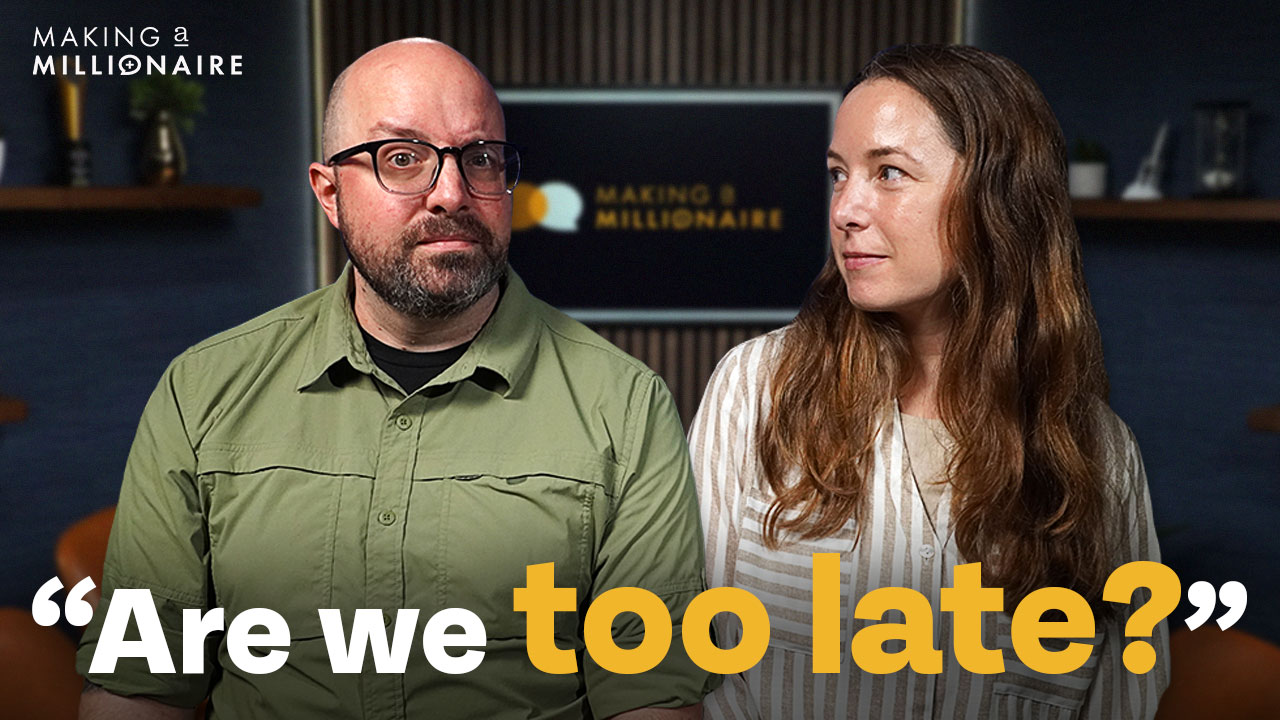He says, "Money Guy show, my wife is 31 and she has all her retirement money in Fidelity Freedom index 2055. This fund doesn't perform as well as the S&P 500. Are index funds really better?" Colin, I'm glad you're here. Welcome, welcome to the party. You picked the right show to come listen to and take a look at. So, this question is all about my wife. She's in this 2055 Target Retirement Index Fund. And for those of you who are not familiar, what that means is that this portfolio, this fund, is going to allocate in such a way that his wife would retire in the year 2055. So, right now, while we're a number of years away from that, it's going to be more aggressive. And then as we move closer and closer to the year 2055, it's going to get more conservative. More conservative, more conservative.
Well, Kyle's initial question, Brian, is a great one. We get this all the time: "Hey, when I look at this and I look at the 2055 fund and I stack it up against just a pure Index Fund, an S&P 500 Index, or maybe an all-world or all-cap index, it doesn't seem like it has as high of a return. It doesn't seem like it performs as well."
Well, the question you may have to ask is why? Because what the 2055 fund is doing is, it's not just buying one asset class. It's not just trying to achieve one goal like beating a specific benchmark. It actually has a number of different holdings inside of it that cause diversification to happen. And so, what happens is, when we diversify our assets, we're kind of saying, "Hey, we recognize we may not get all of the upside, but when the market freaks out and it goes down, we want to limit how much of the downside we should have."
What's great about the Target Date funds is, if you think about squeezing a balloon, some of these longer-dated funds, the 2055, 2065s, they're going to have a lot more of that pure Index exposure. But they're still going to be diversified. They're still going to take some of the risk off the table. So, I'm not surprised at all that that fund is underperforming a touch relative to just a broad standard index.
Well, just to give context, I don't think it's an either-or. That's what, if you're choosing the S&P versus the indexed Target Retirement fund, it's an "and," because guess what, in that 2055 indexed fund, there is going to be S&P 500 or a large-cap equivalent that's sitting in there. So, you actually got that. It's just, as you look at the broader asset allocation, all the things that Bo is just talking about, you got the large-cap index as well as a lot of international, small cap, and probably just a "Tinkerbell dusting" of bonds.
Well, I mean, it is. It's just not going to be a ton. But I think probably what the underperformance over the last 10 years, for sure, would be the probably 20-plus percent that's in international. Now, here's okay, but here's the thing, Kyle. If you probably went and looked at year-to-date, you might be surprised to find that the 2055 (I haven't looked, so you'd have to go do your own due diligence), but I know with such a large portion of international, you might be surprised that it's actually doing well year-to-date. And that's because international is doing better than the domestic at this point in time.
That's why he also brings it back to the point: Be careful looking at short-term periods on this. Because you need to be focusing on the "why" of your money, and asset allocation plays a big part. It's exactly what Beau talked about because it's risk tolerance, it's risk capacity. While you're young, you want to be wide open and taking a lot of risk to grow your money and try to get as much return for your compounding growth. But as you get closer to retirement, you want to kind of bring it in for a landing and not have the wild volatility because your risk capacity and time to recover is just not there. And we just think, while you're starting out, you can focus on saving as much as you can and investing as much as you can, versus wasting your calories and wasting your time trying to become an investment expert. Just bring it down to how much can I save and invest, when do I need it, and just make it easy. And I think over the long term, you'll be very satisfied with the results.
One little piece of that, it's interesting that Kyle said, "Hey, my wife has this and this is how she's investing." I have found that when I talk with couples, it's a really good idea to not think about it as, like, she has her strategy and then he has his strategy. It makes a lot more sense about, "Okay, what's our overall portfolio strategy?" So, if her assets are invested in the 2055 fund, perhaps yours are invested the same way. But you want to make sure that you have all of the assets in the household working together towards one common goal, towards one common plan. If they're doing completely different things, you're likely going to have an inefficiently allocated portfolio. So, that's something to think about as you talk with your wife.
It also opens it up later when you graduate beyond the indexed Target Retirement funds and go to more custom designing your index funds and allocation for your goals. You'd be much more tax-efficient because then you can look at, "How much of the assets are tax-deferred? How much are in after-tax, like brokerage accounts? And how much are in tax-free Roth accounts?" And be very tax-efficient. So, it's not just asset allocation, it's tax allocation as well. That's what goes into this and that's what leads to long-term success. For more information, check out our
free resources.














